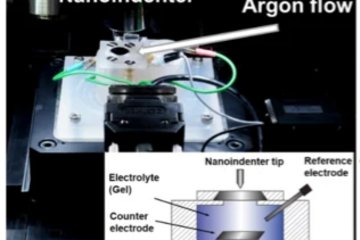All genres
41.
Talk
Ab initio approach to electrochemisty and corrosion. Computational Materials Chemistry Workshop, Telluride, CO, USA (2019)
42.
Talk
Building an ab-initio potentiostat in a standard DFT code with periodic boundary conditions. ELRC2019 - IPAM reuniuon workshop, Lake Arrowhead, CA, USA (2019)
43.
Talk
A fully ab initio approach to modelling electrochemical solid/liquid interfaces. Chemiekolloquium der Johannes Kepler Universität Linz, Linz, Austria (2019)
44.
Talk
Implementation of an ab initio electrochemical potentiostat: Application to Mg corrosion. Symposium "Fundamentals of the electrochemistry of the metal/electrolyte interface", Imperial College, London, UK (2019)
45.
Talk
High-throughput optimization of finite temperature phase stabilities: Concepts and application. DPG Frühjahrstagung der Sektion Kondensierte Materie, Regensburg, Germany (2019)
46.
Talk
First-principles approach to model electrochemical reactions at the solid-liquid interface. Spring Meeting of the German Physical Society (DPG 2019), Regensburg, Germany (2019)
47.
Talk
Extending First-Principles Calculations to Model Electrochemical Reactions at the Solid-Liquid Interface. Towards Reality in Nanoscale Materials X, Levi, Finnland (2019)
48.
Talk
A fully ab initio approach to electrochemistry and corrosion. CNLS Colloquium, Los Alamos National Laboratory, Los Alamos, NM, USA (2019)
49.
Talk
Modelling electrochemical solid/liquid interfaces by first principles calculations. 19th International Workshop on Computational Physics and Material Science: Total Energy and Force Methods, ICTP, Trieste, Italy (2019)
50.
Talk
Ab intiio modelling of solid/liquid interfaces: Challenges and insights. DESY Seminar, Hamburg, Germany (2018)
51.
Talk
A molecular dynamics study of the Mg(0001)/H2O interface using empirical potentials. IMPRS-SURMAT Annual Retreat 2017, Meschede, Germany (2017)
52.
Talk
Automated calculations for charged point defects in MgO and α-Fe2O3. DPG-Frühjahrstagung 2016, Regensburg, Germany (2016)
53.
Poster
Effect of external electric fields on the Mg(0001)/H2O interface studied by empirical potentials using automated tools. The electrode potential in electrochemistry workshop - A challenge for electronic structure theory calculations, Castle Reisensburg (Ulm), Germany (2017)
54.
Poster
Effect of external electric fields on the Mg(0001)/H2O. High electric Fields in Electrochemistry and in Atom Probe Tomography - Workshop, Ringberg Castle, Tegernsee, Germany (2017)
55.
Poster
The Mg(0001)/H2O interface studied by empirical potentials and density functional. DPG-Frühjahrstagung 2017, Dresden, Germany (2017)
56.
Thesis - PhD
Development of an ab initio computational potentiostat and its application to the study of Mg corrosion. Dissertation, Ruhr Universität Bochum (2020)
57.
Thesis - Master
Automated Calculations for Charged Point Defects in Magnesium Oxide and Iron Oxides. Master, Ruhr-Universität Bochum, GermanyRuhr-Universität Bochum, Bochum, Germany (2016)











